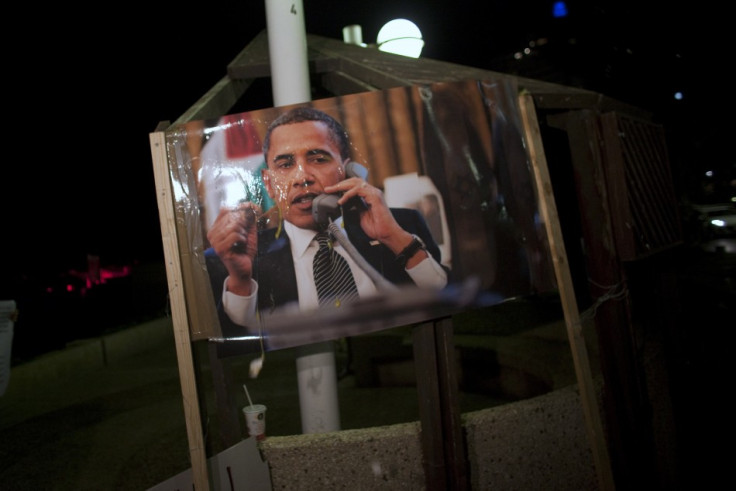Barack Obama's European trip: What do his detractors have to say?

Following the U.S. President's European trip, critics in the United States have claimed the president is using it as a way to deflect attention from the domestic issues that preoccupy Americans. For several months, Barack Obama's ratings on the economy have plummeted which, given that the 2012 election approaches, cannot be good news for the President.
In contrast with the domestic issues that the president will have to face during his next campaign, such as economic problems, unemployment, the budget deficit and taxes, his European visit is seen to be more foreign policy orientated.
Talking about his arrival in Ireland, ahead of the trip the President was quoted as saying: "I am expecting to go not only to all the famous sites, but also to go to Moneygall, where my great-great-great-great-great grandfather hails from."
It seems that observers in the U.K. are now also doubting the U.S. President's new fondness of his Irish origins, which he hoped the visit to Ireland would enable him to 're-discover', as Cristina Odone , in the Telegraph, accused Obama of "naked electioneering."
While he yesterday flew to London for an official State Visit, many accused him of basking in the massive popularity of the Queen in the United States, especially in the wake of the Royal wedding, watched by more than 20 million Americans a month ago.
What, however, seems to most upset critics of the trip is the powerful and triumphant image Obama will be able to project throughout the trip. Following his recent widely covered speech on the Middle East and North Africa, the President will reach Deauville, France, where he is expected to capitalise on the death of Osama Bin Laden and discuss supporting pro-democratic reforms following the Arab Spring.
Even his visit to Warsaw in Poland has led to rumours it just represents another attempt to appeal to more voters, as it could potentially attract the attention of the ten million potential U.S. voters of Polish origin.
Despite the insistence by the President and his administration on the importance of the transatlantic alliance, critics also deplore the lack of translation of the importance of the friendship when it comes to policies. Ahead of the planned visit to Poland, the fact that the administration stalled on talks concerning the missile defence sites that had been promised to Poland and the Czech Republic by the previous Bush administration, following Russian disapproval, comes back on the scene.
In the light of the recent international developments, it seems however rather naïve to only see the visit as an attempt by Obama to widen his electoral appeal. With an economic crisis still persistent throughout the world, and many European countries still deeply affected, now could be an important time for Obama to work with other international leaders on these issues.
Domenico Lombardi, a senior fellow at Washington's Brookings Institution, says Mr Obama knows the economic health of the other G-8 nations will affect the pace of America's economic recovery. "But, of course, it still contains some elements of fragility, and in that sense, it is very important for the U.S. economy that the other systemically important economies are doing well," he said.
Lombardi also adds that he expects Obama to push America's European partners for tougher fiscal policies, especially toward heavily indebted countries such as Greece, Portugal and Ireland. "If anything, President Obama will be asking his European counterparts to be more aggressive in devising a more appropriate response to the crisis in Europe," he said.
The Arab Spring and the overthrow of the Ben Ali and Mubarak regimes have also changed the pre-existing geopolitical balance in the region. As Steven Clemons, a senior fellow at Washington's New America Foundation, acknowledges, the United States and Britain have an enormous stake in the recent changes in the Middle East and North Africa. "The phenomenal changes underway and which will likely continue for years in the Middle East, the on-going challenges of troop deployment in Afghanistan, the combined NATO and allied forces intervention in Libya," he said.
Finally, with regards to Poland, which the President had planned to visit last year but was forced to cancel because of an ash cloud, sources insist he and President Bronislaw Komorowski are expected to sign an agreement to station U.S. F-16 fighter jets in Poland, the proposal that Russia has been trying to stop from coming to fruition in the last few years.
Limiting the U.S. leader's visit to an occasion for him to talk to 'old friends' and retrace his family tree seems after all quite narrow, as we can see what might at first glance seem superficial can turn out to be much more serious and important.
© Copyright IBTimes 2025. All rights reserved.





















